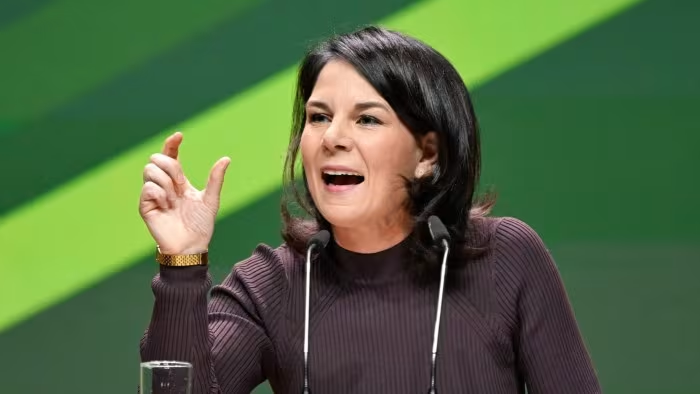The urgency for increased climate finance is underscored by estimates suggesting a need for global funding of $5 trillion annually by 2030 to combat climate change effectively.
Germany’s foreign and development ministers made a fervent appeal on Thursday, urging big-polluting developing countries, notably China, to significantly elevate their contributions to aid poorer nations in combating climate change. Their statements come in anticipation of forthcoming U.N. negotiations aimed at establishing a new climate finance objective.
Annalena Baerbock, speaking at the inauguration of a climate conference in Berlin, emphasized the imperative for major polluters, especially within the G20, to partake in the collective effort. “I strongly urge those who can to join our effort, and particularly the strongest polluters of today,” Baerbock asserted.
Echoing this sentiment, Svenja Schulze, Germany’s Development Minister, iterated the nation’s commitment while underscoring the necessity for others to follow suit. “Germany will contribute, we deliver our fair share, but we also ask other ones to do so,” Schulze stated during a panel discussion at the conference.
“It’s the time of taking action and we need more countries that take their fair share – all the ones who are big emitters, also the Gulf states, also China, we all need to do more,” Schulze emphasized.
When questioned about potential obstacles stemming from the European Union’s recent restrictions on Chinese clean technology imports, Baerbock emphasized the importance of collaboration with China on climate issues. She noted that the competition among nations to develop clean technology could be constructive for advancing the green transition.
“It’s a positive challenge. If everybody wants to be the first to produce climate-neutral not only cars, electricity, but in the future also big industry products, then this is the best answer for the world,” Baerbock affirmed.
Earlier this month, the European Union announced an investigation into subsidies received by Chinese wind turbine suppliers destined for the bloc. These developments come in the context of Germany hosting the annual Petersberg conferences, which set the stage for discussions at the subsequent U.N. COP climate change summit.
The urgency for increased climate finance is underscored by estimates suggesting a need for global funding of $5 trillion annually by 2030 to combat climate change effectively. Negotiations at the upcoming COP29 summit in November will focus on determining the new target for climate finance contributions from wealthier nations to poorer countries each year.
Currently, the list of countries obligated to contribute under U.N. agreements comprises primarily industrialized nations, with major developing country emitters such as China, the Gulf states, and Brazil exempted. While China has emphasized the principle of “common but differentiated responsibilities,” Germany and others continue to stress the need for broader participation in climate finance efforts.
Mukhtar Babayev, Azerbaijan’s Ecology Minister and incoming President of the COP29 summit, acknowledged the contentious nature of climate finance negotiations, acknowledging diverse perspectives among participating nations.
Highlighting the immense financial requirements for ecological transition, Baerbock emphasized the need for both domestic and international financial sources to contribute, with Germany reaffirming its commitment despite budget constraints.
Germany’s steadfast call for increased climate finance from big-polluting developing nations sets the stage for critical discussions ahead of the COP29 summit, underscoring the collective global effort required to address the existential threat of climate change.
